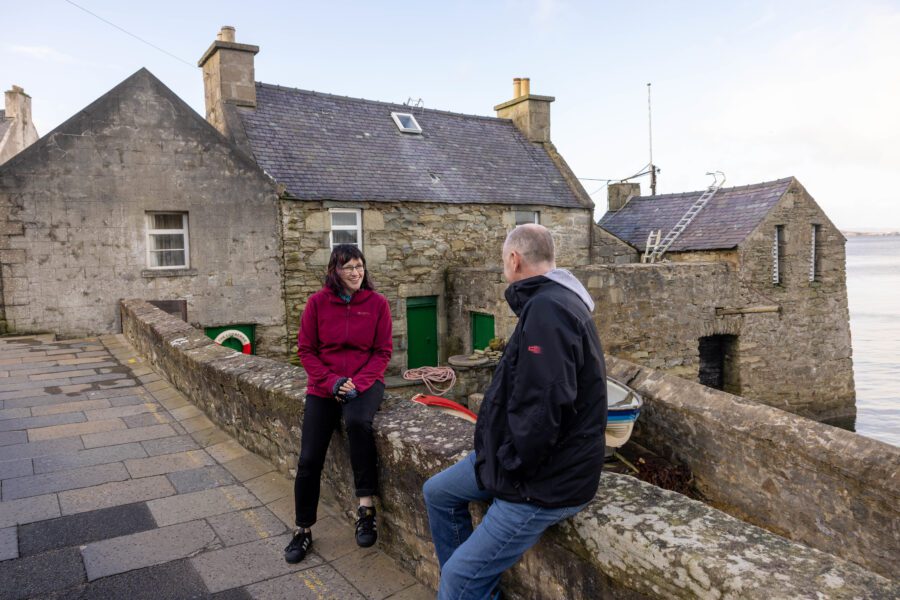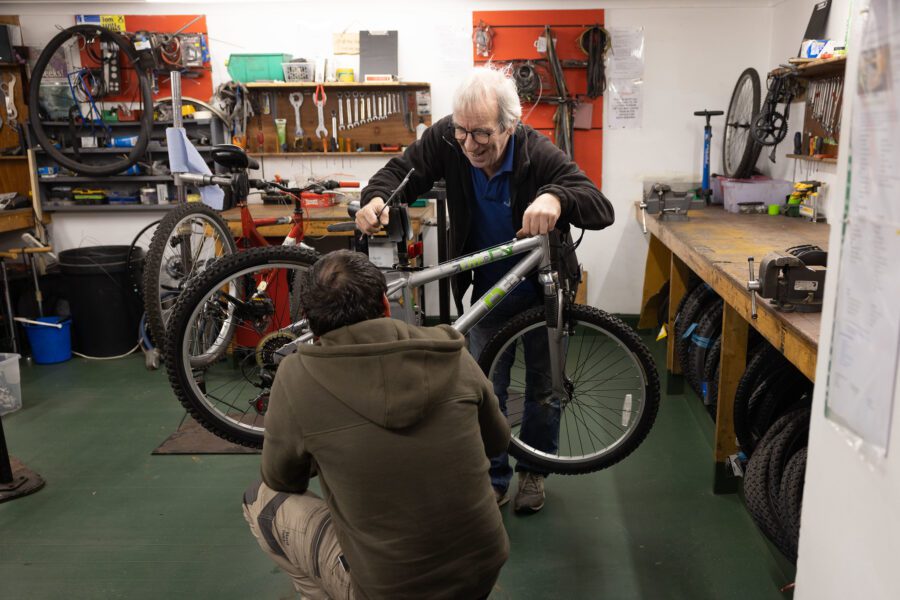How community justice works for island life
Colleen Flaws and Mairi Keith are joint community justice coordinators for Shetland. Here they explain what their work looks like on the island

Colleen
There can be particular challenges for someone in touch with the justice system in a remote location like Shetland. But there are also benefits that come with living in a close-knit island community.
At times, the stigma that can come with a history of certain behaviours isn’t quickly forgotten in a smaller community and can carry through generations, by name association, or relationship association, making it harder for individuals to move on and start over.
But there are also people who are very keen to give second chances, to provide opportunity to change and support those on their journey to more positive outcomes in life. There are those in the Shetland community who can see an individual’s potential and these people help make positive and sustained change possible.
There are many reasons why managing and supporting someone in the community when safe to do so is better than a short prison sentence. For somewhere like Shetland there’s the added issue that we are geographically far away from our closest prison. It’s around 250 miles across the water to HMP Grampian in Peterhead which requires an overnight ferry journey or plane journey plus transport from Aberdeen out to the prison. This has a disproportionately negative impact on the families who have a loved one in custody as travel and accommodation are costly. A community sentence where it’s safe would enable people to stay connected to their loved ones and access support to address their offending behaviour.
Island life can be very different to the mainland and like other remote communities, we can find it a challenge to try to apply strategies, policies and procedures which have been developed and written on mainland Scotland.
But some of our ‘challenges’ can also be our ‘strengths’. Oftentimes we know each other within services. We can walk between many of our partner organisations and establish strong working relationships which allows a more holistic approach to case work.
A client subject to a community-based sentence can build a trusting relationship with their justice social worker, who can literally walk with them on their journey through the system (where appropriate), making links with other services and supporting change. We have a small dedicated team, who all intrinsically work with a trauma-informed approach. They link up with key workers in other organisations who can best support a positive outcome, keeping relationships at the centre of the work whilst paving the way for opportunities to change.
Mairi and I support as lead officers to the Community Justice Partnership preparing and co-ordinating the local community justice plan. This includes the co-ordination of setting, monitoring and publication of performance targets and indicators and subsequent monitoring and reporting on actions, outcomes and achievements against local and national plans.
We work together closely, finding and using each other’s strengths, interests and areas of experience. My experience lies mostly in frontline service delivery with elements of strategic planning within the third sector, predominantly in supporting victims, witnesses and survivors of domestic abuse and supporting people with additional support needs (physical, learning, behavioural, social).
I personally enjoy getting to mix with other partners, hearing (and at times seeing) the difference their input can make to the lives of individuals in our community affected by the justice system.
I like the evidence-based concept that treating the root cause of offending behaviour can prevent further offending and therefore reduce numbers of victims, contributing to a safer community. Very often someone who has offended or is at risk of offending has experienced trauma themselves, they may have been harmed by others, been a victim or witness, which left unresolved has resulted in myriad of intersecting issues which can result in criminal behaviour. I am aware of individuals who have been supported to heal their past, develop trusting relationships, make amends and enhance their life skills. This then allows for healthier and meaningful contribution to our community and society as a whole.
As a partnership, we have the opportunity to lead on positive attitudes and approaches, highlighting the benefits of community-based disposals – where appropriate and safe – for all concerned.
Mairi
I have a background in developing policy, having studied social policy at university, and have experience in consulting and engaging with communities and stakeholders in Shetland. I also work as a childcare officer within children services, so that has helped me in gathering and analysing data to inform and establish policy.
I also enjoy the partnership working, and being able to see the work that is being done locally really make a difference to those affected by the justice system. For example, the work done by the Bike Project – a programme that supports people in touch with the justice system, giving them employability skills and work placements while also helping to re-establish a daily routine of attending work and the ability to reintegrate into society. It’s great being able to actually see the real-life positive impact that this organisation has on people.

Stigma can be a significant issue on the islands. We aim to increase public awareness of community justice to mitigate this real or perceived stigma experienced in order to promote social inclusion and community cohesion.
Partnership working is successful in Shetland as people will often know each other within services. It seems to be a lot easier to be able to find someone who can help you.
We embrace different ways of supporting people. In Shetland we also have a restorative justice organisation called Space2face. They are an independent charity and confidential service which uses restorative practices and the arts to support dialogue between those harmed by crime or conflict and those responsible for causing harm. Their service is free and they work with those who’ve been harmed by crime and those responsible for causing harm. They enable everyone affected by a particular incident or offence to play a part in repairing the harm and finding a positive way forward.
- A Community Justice Event Day was held on 31 October with keynote speaker Karyn McCluskey, the chief executive of Community Justice Scotland. The aim was to increase awareness of community justice. There were also presentations from the justice social work team, Shetland’s Anchor for Families – a team offering support and practical help to families, and Space2face. There was also a presentation of the new local Community Justice Plan.
